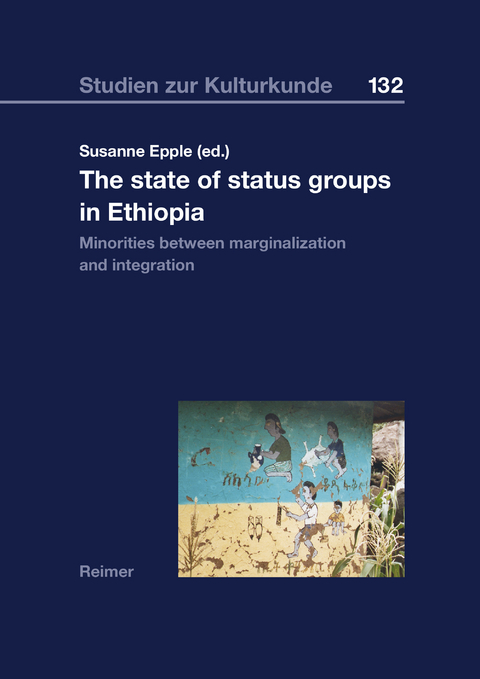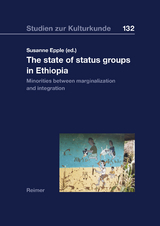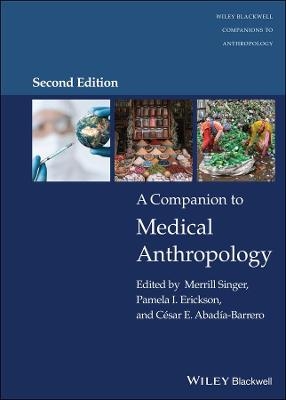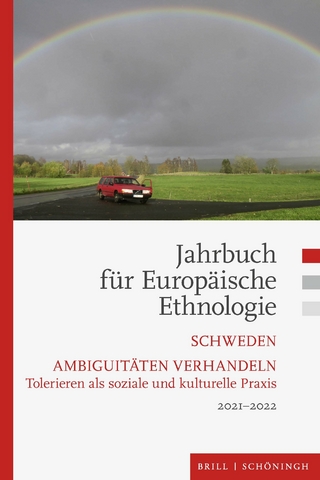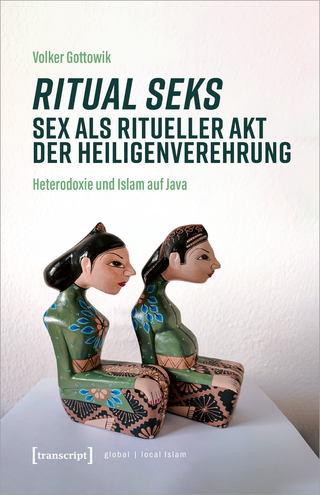The State of Status Groups in Ethiopia
Reimer, Dietrich (Verlag)
978-3-496-01587-1 (ISBN)
Handwerker sowie Nachkommen von Jägern und Sklaven haben in Äthiopien vielerorts einen ambivalenten Status und werden oft bis heute an den Rand gedrängt. Häufig wird dies mit ihrer Herkunft sowie ihren Ernährungsgewohnheiten und Tätigkeiten, die als unrein angesehen werden, begründet. Mittlerweile befinden sich diese sozialen Kategorien jedoch im Wandel und werden neu verhandelt.
Die Autor_innen stellen die Perspektive der marginalisierten Gruppen selbst in den Vordergrund und gehen verschiedenen Fragen nach: In welchen Kontexten hat eine Integration bereits stattgefunden? Kann man sie als nachhaltig bezeichnen? Oder werden gesellschaftliche Gruppen weiterhin - oder sogar verstärkt - an den Rand gedrängt?
Susanne Epple ist Ethnologin. Forschung und Lehre an den Universitäten in Mainz, Addis Ababa, Hamburg und Frankfurt/M. SUSANNE EPPLE has MA and PhD degrees in Social Anthropology from Mainz University. She has done extensive fieldwork on age and gender relations in southern Ethiopia, working among the Bashada since 1994 and the Bayso since 2012. From 2007 to 2015 she was assistant professor at the Department of Social Anthropology, Addis Ababa University in Ethiopia. She is currently a researcher at the Frobenius Institute in Frankfurt, Germany, and research affiliate at Arbaminch University, Ethiopia, working on marginalized groups and legal pluralism in southern Ethiopia. Her interests lie in the areas of gender and age in pastoral societies, social discourse and identity, hereditary status groups, cultural and legal pluralism and human rights. HERMANN AMBORN is Professor Emeritus of Social Anthropology at the Institute of Social and Cultural Anthropology, University of Munich. He was trained as a welding engineer and received his diploma in 1964 before going on to complete a PhD in Social Anthropology in 1973 and his habilitation in 1987. He lectured in Munich, Hamburg, Berlin, Tübingen and Manhatten (Kansas). For several years, he was the spokesman for the working group on ethics of the German Anthropological Association (DGV). Since 1973, his research has focussed on Ethiopia, Kenya and Indonesia and his publications relate to socio-economics (crafts, agriculture, division of work), socio-religion, polycephalous societies, action research, ethics, identity, oral tradition, conflict solving, law and anarchy. DESALEGN AMSALU has an MA in Cultural Studies and a PhD in Social Anthropology from Addis Ababa University. He was a lecturer at Addis Ababa University from 2008–2016 and has been Assistant Professor of Social Anthropology at the Institute of Ethiopian Studies, Addis Ababa University, Ethiopia, since 2016. From 2009 on, he has undertaken several periods of fieldwork in northwestern and central Ethiopia, working among different Agaw communities and among Amhara, Gumuz, and Oromo. He is interested in: ethnicity and ethnic identity, collective memory, social marginalization, as well as the implementation of Ethiopian federalism at the local level. BOSHA BOMBE has a BA in History and an MA in Social Anthropology from Bahir Dar University and Addis Ababa University, respectively. He did intensive fieldwork among the Ganta people in the Gamo Highlands and the Alle people in southwestern Ethiopia. From 2014 to 2016 he was research associate and since September 2016, he has been working as a lecturer in the Department of Sociology and Social Anthropology at Arbaminch University. His research interests focus on: social exclusion and integration, historical and contemporary slavery, marriage and family, ethnic identity, boundaries and citizenship, and labour migration. FABIENNE BRAUKMANN received her MA degree in Social Anthropology from the University of Cologne, Germany. Since 2010, her regional focus has been on southern Ethiopia, where she has conducted extensive fieldwork among the Haro of Lake Abbaya. She is currently a PhD candidate in Social Anthropology at the University of Cologne and researcher at the Asia-Africa-Institute, University Hamburg, working for the DoBeS-project on the endangered languages and cultures of Bayso and Haro. Her research interests include culture and language documentation, hunters and gatherers, minority groups, marginalization, culture and environmental adaptation, culture change and forgetting and remembering. KIYA GEZAHEGNE has an MA degree in Social Anthropology from Addis Ababa University. She has done ethnographic fieldwork in different parts of Ethiopia (mainly in Amhara, Oromia, Benishangul-Gumuz, and Afar) and the Sudan (Khartoum and along the Ethiopia–Sudan border). Her research interests include gender, migration, religion, identity, conflict resolution, and development. Currently, she is a lecturer at the Department of Social Anthropology, Addis Ababa University, Ethiopia. She is also a PhD candidate in the NORHE D project on borderland studies, doing research on religious identity among migrants along the Ethiopia–Sudan border. KIRSI LEIKOLA has an MA and PhD (Linguistic Anthropology) from the Department of World Cultures, African Studies at the University of Helsinki (in affiliation with Addis Ababa University, Department of Linguistics). Both her MA and PhD research dealt with relationship between the Manjo minority and the majority of Kaffa farmers. She has been working in Ethiopia since 1992, serving the Ethiopian Evangelical Church Mekane Yesus (EE CMY ). Currently, she works as an advisor for the development projects in Kaffa and for the EE CMY Central Office’s program on inclusion of the marginalized minorities. Her fields of interest are the process of marginalization and the roles of linguistic practices in creating and crossing social boundaries and identity construction. ALEXANDER MECKELBURG is an independent researcher and consultant in Nairobi. He holds an MA degree in Ethiopian Studies from the University of Hamburg and has recently (3/2017) defended his PhD dissertation. He was an editorial assistant for the Encyclopaedia Aethiopica (2009-2014) and a research fellow at the Hiob Ludolf Centre for Ethiopian Studies (2014-2016) at the University of Hamburg. He carried out research on inter-ethnic relations in Gambella (since 2005) and on the political integration and ethno-history of the Mao and Komo minorities in western Ethiopia (since 2010). GRAZIANO SAVÀ specializes in the description and documentation of the minority and endangered languages of Ethiopia. After his MA at L’Orientale University in Naples, Italy, he obtained his PhD in African Languages and Culture at Leiden University, the Netherlands. Since 1996, he has done extensive linguistic fieldwork in southwest Ethiopia among the Gurage, the Ts’amakko, the Ongota, the Hamar, the Bayso and the Haro, and obtained postdoc fellowships from the Endangered Languages Documentation Programme and the DoBeS project for endangered languages. From 2008 to 2010 he was an associate professor in language documentation at the Linguistics Department of Addis Ababa University. Presently, he is a postdoc researcher at L’Orientale University, working towards the creation of a dictionary and a grammatical sketch of the Nara language of Eritrea. Addis Ababa SAYURI YOSHIDA has an MA degree in Cultural Anthropology from Nanzan University and PhD degree in Cultural Anthropology from Nagoya University, Japan. She was a Designated Assistant Professor of Cultural Anthropology at the Institute for Advanced Research, Nagoya University from 2014 to 2017 and is presently Associate Professor at the Department of Global Liberal Studies, Nanzan University. Since 2004, she has been conducting extensive fieldwork for her MA and PhD theses on the Kaffa and the Manjo people in the Kaffa zone of southwest Ethiopia. Her focus of interest lies in how people regard and represent their own history and culture, and how such representations influence their historical views and identity today. Yoshida’s work and publications were rewarded with the 20th Takashima Prize of Japan Association for Nilo-Ethiopian Studies and the 27th Young Researcher’s Award of Japan Association for African Studies. Dena Freeman holds a PhD in Social Anthropology from the London School of Economics and Political Science (LSE ). She has taught Anthropology at various universities including Cambridge, UCL and the LSE. She has done extensive fieldwork in Ethiopia over the last 20 years, looking at the dynamics of cultural transformation in the Gamo Highlands and exploring issues of happiness, wellbeing, development, markets and moralities, and religious change. She is the author or editor of three books – Initiating Change in Highland Ethiopia: Causes and Consequences of Cultural Transformation (2002), Peripheral People: The Excluded Minorities of Ethiopia (2003, with Alula Pankhurst), and Pentecostalism and Development: Churches, NGOs and Social Change in Africa (2012). She is currently a Senior Visiting Fellow in the department of Anthropology at the LSE. EIKE HABERLAND (†) was a German anthropologist with a great interest in Ethiopia throughout his life. As a researcher at the Frobenius Institute in Frankfurt he did intensive fielwork in southern Ethiopia and he is known for his numerous books and articles, mostly on ethno-history, but also on the special role of craftworkers, hunters, slaves, and sacred kingdoms. In 1965 he became Professor at the Department of Anthropology and African Studies at the University of Mainz, and returned to Frankfurt only three years later to become Professor at the Department of Historial Anthropology at Frankfurt University. He was also the director of the Frobenius Institute in Frankfurt until his death in 1992.
| Erscheinungsdatum | 15.12.2017 |
|---|---|
| Reihe/Serie | Studien zur Kulturkunde ; 132 |
| Zusatzinfo | mit 15 Abb. s/w |
| Verlagsort | Berlin |
| Sprache | englisch |
| Maße | 170 x 240 mm |
| Gewicht | 740 g |
| Themenwelt | Sozialwissenschaften ► Ethnologie ► Völkerkunde (Naturvölker) |
| Sozialwissenschaften ► Soziologie ► Makrosoziologie | |
| Schlagworte | Afrika • Artisans • Äthiopien; Berichte/Erinnerungen • Craftworkers • Ethnographie Äthiopiens • ethnography of Ethiopia • Handwerker • hunters • Jäger • marginalisierte Gruppen • marginalized groups • Minderheiten • Minorities • Randgruppen • Sklaven • Sklavennachkommen • slave descendants • social change • Sozialer Wandel • status change • Statuswechsel |
| ISBN-10 | 3-496-01587-X / 349601587X |
| ISBN-13 | 978-3-496-01587-1 / 9783496015871 |
| Zustand | Neuware |
| Haben Sie eine Frage zum Produkt? |
aus dem Bereich
